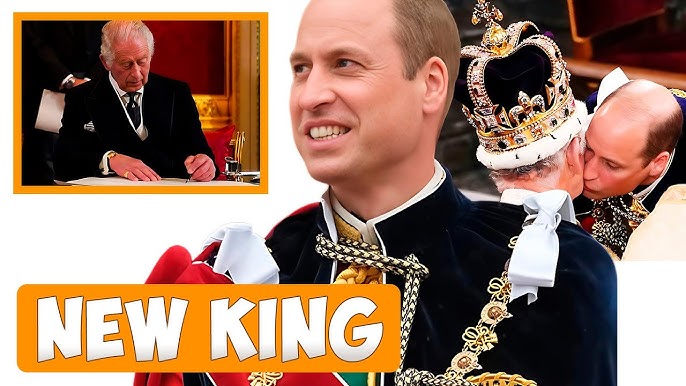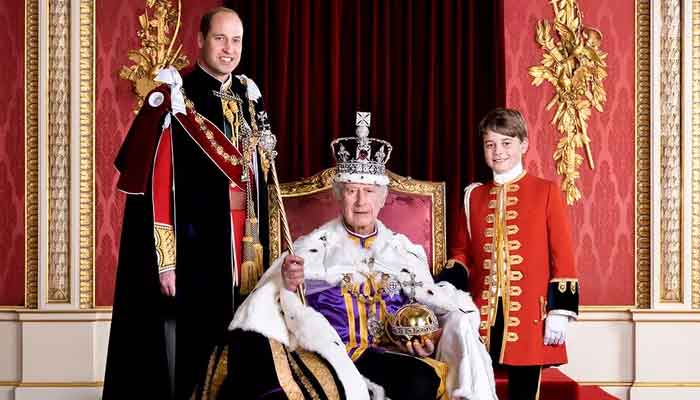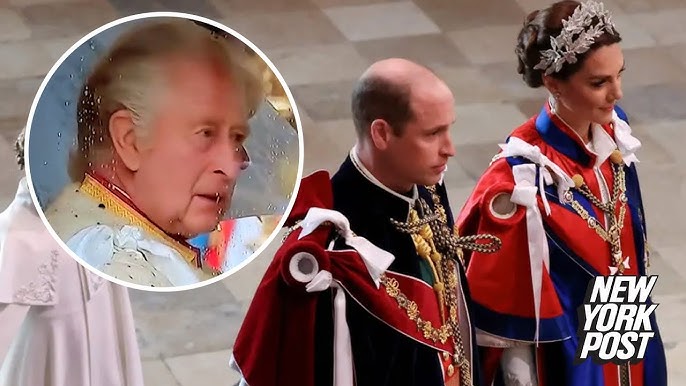Imagine waking up to the news that the reigning monarch of one of the world’s oldest monarchies is stepping down.
Sounds like a plot twist straight out of a historical drama, right? Well, that’s precisely what happened when King Charles III made a series of shocking announcements that left the world in awe.
In a move that has both stunned and excited royal watchers, King Charles has decided to hand over significant powers to his son Prince William and daughter-in-law Kate Middleton.
But what led to this unprecedented decision? Let’s dive into the royal intrigue and uncover the story behind this monumental shift.

King Charles III, who ascended to the throne after the passing of Queen Elizabeth II, has always been a figure of both tradition and modernity. His reign has been marked by efforts to modernize the monarchy while preserving its rich heritage. However, his recent decision to delegate substantial responsibilities to Prince William and Kate Middleton marks a significant departure from royal norms. This move is not just about easing the burden on the aging monarch but also about preparing the next generation for leadership.
But what exactly does this transition entail? In a televised address that captivated millions, King Charles announced his intention to transfer key duties to Prince William and Kate. The announcement was filled with heartfelt words and a clear vision for the future. “As I look towards the future, I see the need for a younger, more dynamic leadership to guide our nation through the challenges ahead,” King Charles stated. This declaration was not just a passing of the torch but a strategic move to ensure the monarchy remains relevant in the 21st century.
With this transition, Prince William and Kate Middleton will take on more prominent roles within the monarchy. Prince William, already the Duke of Cornwall and Cambridge, will assume additional duties, including representing the monarchy at international events and overseeing key charitable initiatives. Kate, known for her grace and dedication, will continue her work in early childhood development and mental health but with an expanded platform. This shift is designed to leverage their popularity and modern approach to royal duties.

The public’s reaction to King Charles’s announcement has been a mix of surprise, excitement, and curiosity. Many see this as a positive step toward a more relatable and modern monarchy. Social media has been abuzz with discussions, memes, and heartfelt messages of support. “It’s about time we see a younger generation take the lead,” tweeted one royal fan. However, not everyone is on board. Some traditionalists worry about the implications of such a significant change. Will this move strengthen the monarchy or dilute its historical essence?
To understand the significance of this transition, it’s essential to look back at previous royal handovers. The British monarchy has seen its fair share of abdications, regencies, and power shifts. From King Edward VII’s abdication to Wallis Simpson to Queen Elizabeth II’s long and stable reign, each transition has left its mark on history. How will King Charles’s decision compare? Will it be seen as a bold move toward modernization or a controversial break from tradition?
Beyond the public and political implications, this decision also sheds light on the personal dynamics within the royal family. King Charles’s relationship with Prince William and Kate has evolved over the years—from the early days of William and Kate’s courtship to their roles as parents and senior royals. Their bond has grown stronger, and this transition is not just a strategic move but also a testament to the trust and respect between them.
As Prince William and Kate Middleton step into their new roles, the future of the British monarchy looks both promising and challenging. They bring a fresh perspective, a deep sense of duty, and a modern approach to their responsibilities. However, they also face the daunting task of balancing tradition with innovation. How will they navigate this delicate balance? What new initiatives and changes can we expect from their leadership?

King Charles’s decision has not only captured the attention of the British public but also sparked reactions from monarchies around the world. From Europe to the Middle East, royal families are watching closely. Some see this as a potential blueprint for their own transitions, while others remain skeptical. How will this move influence global perceptions of the British monarchy? Will it set a precedent for other royal families?
The media has been in a frenzy since the announcement, with headlines ranging from supportive to speculative. Tabloids, news channels, and online platforms are all vying for the latest scoop. Rumors and theories abound, from potential abdications to behind-the-scenes power struggles. Amidst the noise, one thing is clear: the world is watching every move of the royal family. How will they manage the media spotlight and maintain their privacy in today’s digital age?
The public’s engagement with the monarchy has taken on new dimensions. Social media platforms provide a direct line of communication between the royals and their followers. This transition offers an opportunity for Prince William and Kate to connect with the public in unprecedented ways. How will they leverage this engagement to strengthen their bond with the people? What role will the public play in shaping the future of the monarchy?
No transition is without its challenges, and this one is no exception. Prince William and Kate will undoubtedly face controversies and criticisms as they step into their new roles. From political pressures to public scrutiny, they will need to navigate a complex landscape. How will they address these challenges? What strategies will they employ to maintain their integrity and uphold the values of the monarchy?

As King Charles steps back from some of his duties, it’s an opportune moment to reflect on his reign. His efforts to modernize the monarchy, his environmental advocacy, and his dedication to charitable causes have left a lasting impact. How will history remember King Charles III? What lessons can future generations learn from his leadership?
A new chapter begins as we witness this historic transition. One thing is certain: the British monarchy is entering a new era, with Prince William and Kate Middleton at the helm. The future looks bright and full of possibilities. Their leadership will shape the monarchy for years to come, blending tradition with modernity in a way that resonates with the public.
As we look ahead, let’s embrace this change with optimism and curiosity. What do you think about King Charles’s decision to hand over power to Prince William and Kate? Do you see this as a positive step toward modernization, or do you have concerns about the future of the monarchy? Share your thoughts in the comments below and join the conversation. Let’s keep the discussion going and explore the many facets of this historic transition together.
This article provides a comprehensive look at King Charles’s shocking announcements and the implications for the future of the British monarchy. By blending storytelling, historical context, and personal insights, it aims to engage readers and spark meaningful discussions. Feel free to share your thoughts and join!